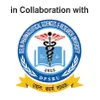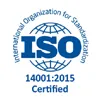Current Trends
AYUSH 64 found useful in the treatment of mild to moderate COVID-19 infection
In the middle of the havoc wreaked by second wave of the pandemic, AYUSH-64 has emerged as a ray of hope for the patients of mild and moderate COVID-19 infection. The scientists of reputed research institutions of the country have found that AYUSH 64, a poly herbal formulation developed by the Central Council for Research in Ayurvedic Sciences (CCRAS), Ministry of Ayush is useful in the treatment of asymptomatic, mild and moderate COVID-19 infection as an adjunct to standard care. It is worthwhile to mention that initially the drug was developed for Malaria in the year 1980 and now is repurposed for COVID-19.
The Ministry of Ayush-Council of Scientific and Industrial Research (CSIR) collaboration has recently completed a robust multi-centre clinical trial to evaluate the safety and efficacy of AYUSH 64 in the management of mild to moderate COVID-19 patients.
AYUSH 64 comprises of Alstonia scholaris (aqueous bark extract), Picrorhiza kurroa (aqueous rhizome extract), Swertia chirata (aqueous extract of whole plant) and Caesalpinia crista (fine-powdered seed pulp). It is extensively studied, scientifically developed, safe and effective Ayurveda formulation. This medicine is also recommended in National Clinical Management Protocol based on Ayurveda and Yoga which is vetted by National Task Force on COVID-19 Management of ICMR.
Dr Arvind Chopra, Director, Centre for Rheumatic Diseases, Pune and honorary chief clinical coordinator of the Ministry of Ayush - CSIR collaboration informed that the trial was conducted at three centres. KGMU, Lucknow; DMIMS, Wardha and BMC COVID Centre, Mumbai involving 70 participants in each arm. Dr Chopra stated that AYUSH 64 as an adjunct to standard of care (SoC) showed significant improvement and thus lesser period of hospitalization as compared SoC alone. He also shared that several significant beneficial effects of AYUSH 64 on general health, fatigue, anxiety, stress, appetite, general happiness and sleep were also observed. Dr. Chopra concluded that this controlled drug trial study has provided substantial evidence that AYUSH 64 can be effectively and safely used to treat mild to moderate cases of COVID-19 as adjuvant to SoC. He also added that, patients on AYUSH 64 will still require monitoring so as to identify any worsening of disease requiring more intensive therapy with oxygen and other treatment measures provided during hospitalization.
Dr. Bhushan Patwardhan, National Research Professor, Ayush and Chairman of the Inter-disciplinary Ayush Research and Development Task Force on COVID-19 stated that the results of AYUSH-64 study are highly encouraging and in the current crisis situations needy patients should be able to get benefits of Ayush 64. He also underlined that this multi-centre trial was monitored by Ayush-CSIR Joint Monitoring Committee (MC) under the chairmanship of Dr. V M Katoch, former Secretary, Department of Health Research and former Director General, Indian Council of Medical Research (DG, ICMR). He further added that these clinical studies periodically reviewed by an independent Data and Safety Management Board (DSMB).
Dr. V M Katoch, Chairman of the MC informed that the committee has carefully reviewed the outcome of AYUSH 64 study and recommended AYUSH 64 in the management of asymptomatic, mild to moderate COVID-19. It is worthwhile to note that this committee has also recommended Ministry to communicate to the state licensing authorities/regulators regarding adding new indication of AYUSH 64 for repurposing in the management of mild to moderate COVID-19.
FDA Authorizes First Robotically-Assisted Surgical Device for Performing Transvaginal Hysterectomy
The U.S. Food and Drug Administration has authorized marketing of the Hominis Surgical System, a new robotically-assisted surgical device (RASD) that can help facilitate transvaginal hysterectomy in certain patients. The Hominis Surgical System is intended for benign hysterectomy (removal of the uterus for non-cancerous conditions) with salpingo-oophorectomy (removal of one or both fallopian tubes and ovaries).
“We are providing physicians and patients another minimally-invasive gynecologic surgical option for non-cancerous conditions,” said Binita Ashar, M.D., MBA, FACS, director of the Office of Surgical and Infection Control Devices in the FDA’s Center for Devices and Radiological Health. “The FDA continues to support advancements in safe and effective medical devices that can improve patient experiences when undergoing surgical procedures.”
RASD, sometimes referred to as robotic surgical devices or computer-assisted surgical devices, are not actually robots. The devices cannot perform surgery without direct human control. RASD enable a surgeon to use computer and software technology to control and move surgical instruments through one or more tiny ports (incisions or orifices) in the patient’s body and in a variety of surgical procedures or operations. RASD technology facilitates performing minimally-invasive surgery and complex tasks in confined areas inside the body.
To remove the uterus, the Hominis Surgical System uses minimally-invasive surgical instruments inserted through the vagina (transvaginal approach) and a video camera inserted laparoscopically through a small incision on the abdomen for visualization of the instruments inside the patient. The transvaginal approach requires fewer incisions on the abdomen compared to conventional laparoscopic hysterectomy. During the procedure, surgeons in the operating room control the instruments from the Hominis Surgical System console. The FDA will require the manufacturer to develop and provide a comprehensive training program for surgeons and operating room staff to complete before operation of the device.
Bharat Biotech factsheet prohibit vaccine for people with allergies and medical conditions
The list also includes pregnant or breastfeeding women, and people who have received another COVID-19 vaccine.
Bharat Biotech has issued a fact sheet on Covaxin, its COVID-19
vaccine. It advises pregnant or breastfeeding women, besides people
with high fever or bleeding disorders, to not take the vaccine. The
company said the clinical efficacy of the vaccine is yet to be
established and is being studied in Phase 3 clinical trial and hence it is
important to appreciate that receiving the vaccine does not mean
other precautions related to COVID-19 need not be followed. “You
should not get Bharat Biotech’s COVID-19 vaccine Covaxin if you have
any history of allergies. Have high fever. Have bleeding disorder or are
a blood thinner. Immune compromised or are a medicine that affects
your immune system. Are pregnant. Are breastfeeding. Have received
another COVID-19 vaccine. Any other serious health-related issues, as
determined by the vaccinator/officer supervising vaccination,” the fact
sheet said.
The fact sheet also asked people to inform the vaccinator or a
supervising official about their medical condition before taking the
vaccine. Bharat Biotech said that in an ongoing clinical trial, Covaxin
has been shown to generate immunity following two doses given four
weeks apart. Covaxin is a vaccine with approval for restricted use in
emergency situations that may prevent COVID-19.
The Central Licensing Authority has granted permission for the sale or
distribution of the antidote for restricted use in emergency situations
in public interest as an abundant precaution, in clinical trial mode, the
fact sheet said.
(Edits by EP News Bureau)
Dr Reddy’s gets DCGI nod for Phase 3 clinical trial for Sputnik V vaccine
The phase 3 study of Sputnik V will be conducted on 1500 subjects as part of the randomized, double-blind, parallel-group, placebo-controlled study in India Dr Reddy’s Laboratories has received approval from the Drugs Control General of India (DCGI) to conduct phase 3 clinical trial for the Sputnik V vaccine in India.
The phase 3 study of Sputnik V will be conducted on 1500 subjects as part of the randomized, double-blind, parallel-group, placebo- controlled study in India.
Earlier, the Data and Safety Monitoring Board (DSMB) reviewed the safety data from the phase 2 clinical trial of the vaccine and recommended phase 3 recruitment. In its report, the DSMB concluded that no safety concerns were identified and the study met the primary endpoints of safety.
GV Prasad, Co-chairman and MD, Dr Reddy’s Laboratories said, “This is an important milestone in the progress of this pivotal clinical trial of the vaccine. We expect to commence the phase 3 study within this month and will continue to fast-track our efforts to bring in a safe and efficacious vaccine for the Indian population”.
In September 2020, Dr Reddy’s partnered with Russian Direct Investment Fund (RDIF) to conduct the clinical trials of the Sputnik V vaccine and for its distribution rights in India.
Sputnik V developed by the Gamaleya National Research Institute of Epidemiology and Microbiology was registered by the Ministry of Health of Russia and became the world’s first registered vaccine against COVID-19 based on the established human adenoviral vector platform. The vaccine’s efficacy is confirmed at 91.4 per cent based on data analysis of the final control point of clinical trials in Russia. Currently, the vaccine’s clinical trials are underway in the UAE, Egypt, Venezuela and Belarus while it has been registered in Algeria, Argentina, Belarus, Bolivia and Serbia for inoculation.







